Handbooks and Module Briefs
Below you’ll find a link to a ready-to-use template and a fully annotated example to guide you as you populate your own module handbook. These new validated handbooks, designed in accordance with British Dyslexia Association guidelines and all relevant regulatory standards, ensure clear, accessible information on how each module will be taught and assessed.
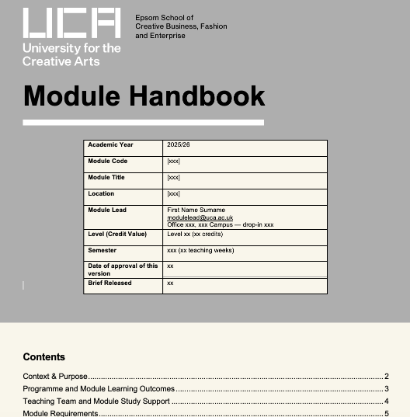
From September 2025, every course should adopt these handbooks alongside the UCA generic grading criteria, with full university-wide implementation and audit of handbook use by the end of 2026. Use the template below to streamline your course design, and refer to the example files for detailed instructions on what to include in each section. It is recommended that you download these for fully aligned formatting
Module Handbook (annotated version)
Module Handbook (student facing version)
Module Handbook (template)
Below you’ll find a link to a ready-to-use template and a fully annotated example to guide you as you populate your own assessment brief. These new validated briefs, designed in accordance with British Dyslexia Association guidelines and all relevant regulatory standards, ensure clear, accessible information on how each brief will be taught and assessed.
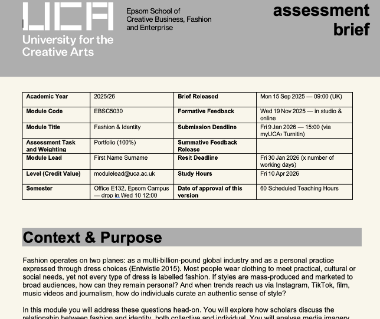
From September 2025, every course should adopt these assessment briefs alongside the UCA generic grading criteria, with full university-wide implementation and audit of assessment brief use by the end of 2026. Use the template below to streamline your course design, and refer to the example files for detailed instructions on what to include in each section. It is recommended that you download these for fully aligned formatting
Assessment Brief (annotated version)
Assessment Brief (student facing version)
Assessment Brief (template)
This is a wonderful paper that delves into how to build a sense of belonging through teaching and learning. It might be a helpful resouce to consider when designing course and unit handbooks.
Here is great article from Wonkhe, written by QAA's Ailsa Crum on questioning what an inclusive curriculum looks like.
This is a helpful resource from Advance HE on inclusive curriculum design.
Generic Grading Criteria
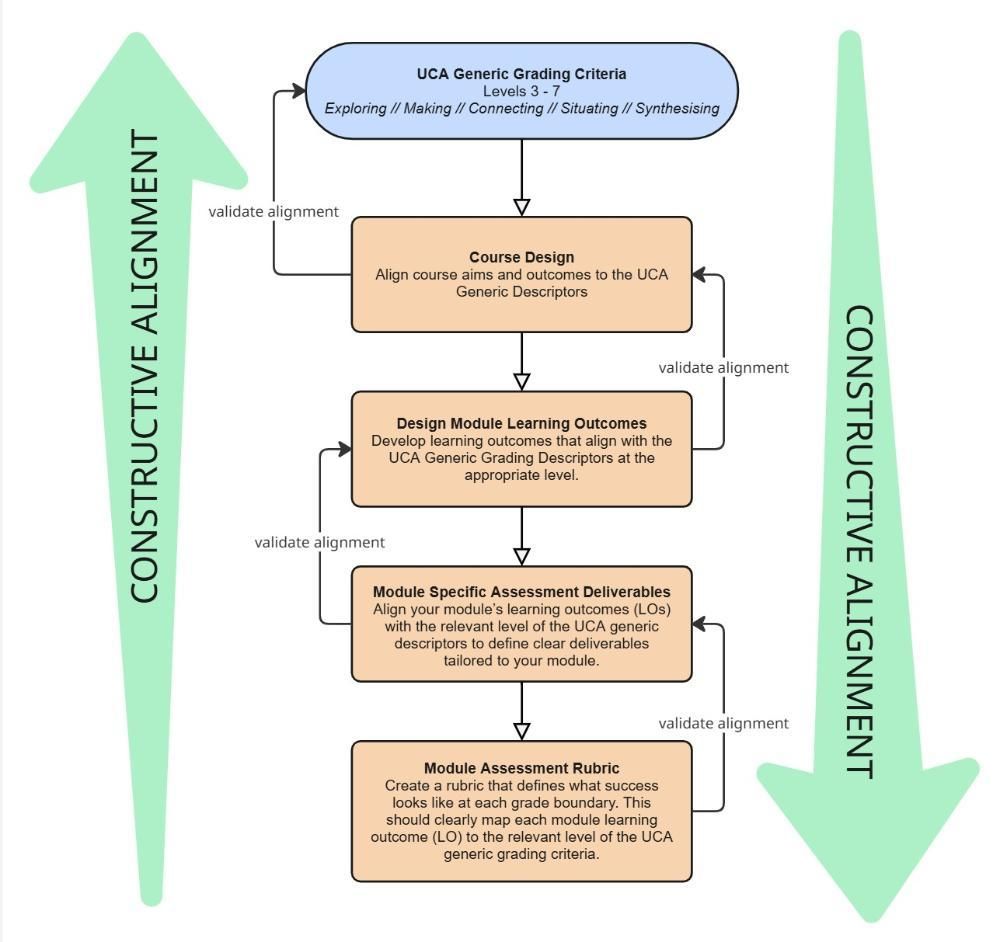
Curriculum Design
Learning Objectives
Please join us for our next series of Creative Education webinars on both the 30th April 2025 where we will discuss 'How to introduce subjects and skills in a way that builds on what students have already learned' and on the 25th June 2025 where we will explore 'Creating an Intellectually Engaging Space'. All of these webinars are now bookable via iTrent and clicking on the 'Learning' tab. Once you have booked, a link will be made available to add to your Teams calendar.
This helpful resource from Sheffield Hallam University details Learning Objectives (or outcomes as they refer to them as). It would be a helpful tool when constructing your own teaching space.
This very useful UAL guide on 'Crafting Learning Objectives' has some great resources in the bibliography.
This interview with Biggs and Tang explores constructive alignment.
A helpful short guide by QAA on the interconnection between Learning Objectives and assessment and feedback.
Lesson Planning
Do have a look at our LiteLearn videos for more support on lesson planning.
We also have some great webinars to support you in planning your teaching. You can find these here.
This interesting podcast explores Tom Sherrington and Emma Turner discussions on good teaching practices, theories of student learning, and implementation.
Assessment Glossary
Here is a useful 'Glossary of Assessment' that can help guide you in some of the terminology used at UCA.
- Unit: Self-contained elements of study with defined learning objectives, contributing to a course.
- Assessment Component: Activities undertaken by students to assess the extent to which learning objectives of a unit are met.
- Assessment Criteria: Descriptions of what a student is expected to do to demonstrate that learning outcomes have been achieved.
- Credit / Credit Volume: Numerical value denoting the amount of learning expected for a student to achieve the outcomes of a unit.
- Credit Level: Reflects the depth of learning and intellectual demand required to meet the learning outcomes.
- Resit: Opportunity for reassessment without attendance, usually completed before the start of the next academic year.
- Defer: Postponing an assessment attempt due to mitigating circumstances, allowing assessment as if for the first time.
- Enrol/Register: Processes of joining a course (enrol) and a unit (register) at UCA.
- Retake: Reassessment of an entire unit with attendance in the following academic year, including previously passed components.
- Progression: Movement from one stage to the next in a course, subject to meeting credit requirements.
- Stage: The period of study leading to a formal progression or award point.
- Moderation: A quality assurance process where a sample of student work is reviewed to ensure consistency and fairness in marking and grading practices across different assessors and units.
- Sampling: The selection of a representative subset of student work from a larger cohort for the purpose of moderation or validation, ensuring the assessment process's integrity and consistency.
- Internal Verification: A quality assurance process used at UCA to ensure the reliability and consistency of assessment decisions within the university. This process involves a thorough review of assessment tasks, marking schemes, and the grading of student work by internal staff members. The purpose is to confirm that assessment criteria are applied consistently in the marking of students work, and that the assessment process is fair, valid, and aligned with UCA's academic standards. Internal verification may involve blind double marking, sample marking, cross-marking or moderation [see the level 7 CCF/Taught Course Regulations for more details].
- External Verification: A process involving external experts reviewing the assessment and verification procedures on a course to ensure they align with external standards and requirements. This process typically includes the examination of a sample of student work, assessment tasks, and verification records. External verifiers, who are professionals or academics from other institutions or relevant industries, provide an objective assessment of whether UCA's internal verification and overall assessment practices meet the expected criteria of external accreditation bodies, industry standards, or national educational benchmarks.
- Learning Objective: A specific, measurable statement detailing the desired outcome of student learning for a unit or course, guiding the design of curriculum and assessments at UCA.
- Mitigating Circumstances: Factors outside of a student's control that may negatively impact their performance in assessments, considered by UCA when reviewing assessment results.
At UCA we view assessment as a holistic process that extends beyond measuring academic progress to nurturing creative practice, innovation and experimentation, research and analysis and communication and connectivity within create communities. Embedded through these principles is an unwavering commitment to continually improve the way we enhance diversity and inclusivity within our assessment framework. UCA’s assessments are transparent, equitable, and supportive, providing students with valuable feedback to encourage continuous improvement.
Here are some helpful links to UCA policies, procedures and forms used for assessment:
Assessment Policy The Assessment Policy 2022/23 document outlines the university's approach to student assessments, covering principles of assessment, assurance of academic standards, conduct of assessments, grading, feedback mechanisms, and the security of assessment information. Additionally, it includes specific guidelines on various assessment methods, including portfolio assessments, and addresses requirements for courses linked with professional or statutory bodies.
Feedback forms
This cover sheet must be completed and submitted with all work including essays, Dissertations and practical work (with the exception of oral assessments).
Students must receive a separate Assessment Feedback Form for each assessment component of each unit.
Grading Descriptors
The UCA Grading Descriptors provide a structured and detailed framework to assess student work, ensuring consistency and fairness in grading across all courses at UCA.
- Students can use these descriptors to self-assess their work and understand areas for improvement.
- They can be a guide for setting academic and professional goals throughout the course.
- Helps students understand the feedback from tutors in the context of these descriptors.
- Students and tutors can use these descriptors to track progress over time, ensuring that all essential skills and knowledge areas are being developed.
- Level 3 Grading Descriptors
- Level 4 Grading Descriptors
- Level 5 Grading Descriptors
- Level 6 Grading Descriptors
- Postgraduate Taught Course Regulations (PG TCR) 2024/25
- Level 7 Grading Descriptors
The UCA Level 7 Common Credit Framework (CCF) is a set of regulations that apply to taught courses leading to postgraduate awards at UCA. The document covers course award alignment, information on units, credits, course stages, assessment and progression.
Join us on 29th January for our Creative Education webinar on 'Feedback and Feedforward'. All of these webinars are now bookable via iTrent and clicking on the 'Learning' tab. Once you have booked, a link will be made available to add to your Teams calendar.
This is a wonderful podcast exploring Dr Emily Salines' research on compassionate feedback.
Here is a useful YouTube video as part of Advance HE's webinar on 'Assessment in the Era of AI'
This UAL guide highlights how you eliminate inequality from formative assessment practices.
Social Justice
Social justice in higher education refers to the efforts and practices aimed at ensuring equity, fairness, and inclusivity within universities. It involves mitigating systemic inequalities that affect marginalised groups based on race, ethnicity, gender, sexual orientation, socioeconomic status, disability, and other identities.
When exploring a social justice model through our teaching, we can be mindful of;
An inclusive curriculum and pedagogy
Developing curricula that reflect diverse perspectives and histories, and implementing teaching methods that recognise and respect the varied learning styles and experiences of students. This includes:
- Incorporating diverse voices in academic content.
- Promoting critical thinking about power structures, inequality, and justice.
- Ensuring faculty are trained in inclusive teaching practices.
Ensuring diverse representation
Increasing the representation of diverse students, faculty, and staff in higher education institutions. This includes fostering environments where diverse identities are valued and celebrated, rather than marginalised. Measures could include:
- Recruiting faculty and leadership from diverse backgrounds.
- Supporting affinity groups and networks for minority students and faculty.
- Promoting diversity in decision-making processes.
Supportive campus climate
Creating a campus culture that is inclusive, respectful, and supportive of all students, especially those from marginalised groups. This can include:
- Addressing incidents of discrimination, bias, or harassment.
- Implementing policies that promote mental health, well-being, and safety for all students.
- Supporting programs that foster understanding and collaboration among different groups.
Addressing systemic barriers
Recognising and dismantling structural inequalities that exist within the higher education system itself. This can involve:
- Challenging policies and practices that perpetuate inequality.
- Conducting regular assessments of institutional policies to ensure they promote fairness.
- Promoting accountability and transparency in addressing issues related to racism, sexism, ableism, and other forms of discrimination.
Economic justice
Tackling the financial barriers that disproportionately affect students from lower-income backgrounds. This includes:
- Exploring avenues to increase financial accessibility for students, such as enhancing scholarships, bursaries, and funding support.
- Supporting affordable housing, food security, and access to technology.
- Ensuring fair wages and working conditions for student workers and adjunct faculty.
Activism and advocacy
Encouraging students, faculty, and staff to engage in social justice advocacy both on and off-campus. Universities often serve as spaces for social movements and change, providing platforms for dialogue and action on societal issues.
Social justice in higher education aims not only to improve access to education for all but to transform the educational environment so that it serves as a space for fostering critical consciousness and creating more equitable, just societies.
The term "awarding gap" in the context of UK higher education refers to disparities in academic outcomes between different groups of students. Specifically, it focuses on differences in degree attainment, classifications, and honours achieved by students from various demographic backgrounds, such as ethnicity, socioeconomic status, and disability.
The awarding gap is a subset of the broader issue of educational attainment gaps, reflecting disparities in success rates at the end of a course of study. The concern arises when there are noticeable differences in the proportion of students from different demographic groups who achieve the highest degree classifications (e.g., first-class honours or upper-second-class honours).
You can find more information on awarding gaps here:
Office for Students (OfS)
Since January 2022, the OfS in the UK has been actively engaged in addressing issues related to awarding gaps and promoting equality in higher education. The OfS is responsible for regulating and overseeing higher education providers in England. It places a strong emphasis on ensuring that all students, regardless of their background, have equal opportunities for success and are not disadvantaged by systemic barriers.
The OfS has set expectations for higher education providers to actively address and eliminate disparities in degree outcomes. They have encouraged institutions to take a data-driven approach to identify and understand awarding gaps, considering factors such as ethnicity, gender, socioeconomic background, and disability.
Degree-awarding gaps: a targeted approach by OfS
OfS Access and participation data dashboard
OfS Degree attainment resources
OfS’s case studies on effective practice in access and participation
Blake, J. (2022) Next Steps in Access and Participation at: https://www.officeforstudents.org.uk/news-blog-and-events/press-and-media/next-steps-in-access-and-participation/ (accessed 1 Sept. 2022)
Centre for Transforming Access and Student Outcomes in Higher Education - CAST is an organisation that undertakes and uses research and evaluation to determine what works in eliminating equality gaps in higher education.
Kingston University inclusive curriculum consultation programme
QAA
Eliminating differential outcomes and closing racialised awarding gaps - online repository
Time Higher Education – three immediate changes academics can make to close awarding gaps
AdvanceHE
AdvanceHE Degree Attainment Gaps
AdvanceHE launches ethnicity awarding gaps in UK HE in 2019/2020 report
UCA
UCA Transparency Information 2021/2022
UCA's Saturday Clubs are led by experienced creative practitioners. They give you a chance to develop a portfolio of work. The programmes equip you with new skills to help build your confidence and ability to express your ideas and hone your creative practice.
All our Saturday clubs are free to participate in and materials are provided to anyone allocated a place. You must be a UK resident to take part.
The UCA policy on Education for Sustainable Development (ESD) is embedded in UCA’s academic quality assurance programme. All academic course teams are required to reflect upon ESD in relation to their courses in preparation for course validation and periodic review.
Education for Sustainable Development empowers learners to take informed decisions and responsible actions for environmental integrity, economic viability, and a just society, for present and future generations, while respecting cultural diversity. It is about lifelong learning and is an integral part of quality education. ESD is holistic and transformational education which addresses learning content and outcomes, pedagogy, and the learning environment. It achieves its purpose by transforming society. (UNESCO, 2019)
In late 2022 academic programme directors mapped the content of each course against the United Nations seventeen Sustainable Development Goals (SDGs). All courses have taught content that engages students on issues relevant to the SDGs, including for example, equality and diversity, climate change and sustainable resource consumption and production. The mapping exercise is ongoing, and the findings will be used to track the how ESD is embedded across the curriculum.
In 2021 UCA’s Business School for the Creative Industries signed up to the United Nations' Principles for Responsible Management Education (PRME), where learning will focus on the UN PRME’ s six key principles; purpose, values, method, research, partnership and dialogue, with an emphasis on ethics, inclusivity and sustainability in business.
In 2021/22 the University’s School of Fashion & Textiles (SoFT) launched the UK’s first degree course in digital fashion. The MA Digital Fashion, which commenced in September 2021, is a response to the environmental concerns of fast fashion and the significant market growth in online virtual fashion, through virtual and augmented reality, social media and gaming, where garments are designed for the virtual world.
In October 2019, UCA became one of the founder partners in the BAFTA (British Academy of Film and Television Arts) Albert sustainable education partnership.
Albert brings the UK screen industries together to tackle their environmental impact and inspire sustainable living: reducing the impact of the production process and being the vehicle for positive environmental change.
UCA’s School of Film, Media and Performing Arts has adopted Albert’s ‘Applied Skills for a Sustainable Screen Industry’ module, which was introduced to provide students with the opportunity to understand sustainability and its professional and personal relevance. The module also aims to equip graduates with the skills to support the industry’s sustainability transition once they are working within it. This year is the third year that graduates of the BA TV production have been accredited by BAFTA as Albert graduates, with 89% of students achieving Albert Graduate certification.
Students are also able to access the Industry Carbon Calculator to work towards achieving an Albert footprint certification for their work, which demonstrates that the environmental impact of their productions have been monitored and measures have been taken to manage and reduce impact.
Decolonising the curriculum in higher education involves critically reassessing and restructuring teaching materials, methods, and institutional practices to address and dismantle the dominance of Western, Eurocentric perspectives. We are seeking to recognise, value, and integrate knowledge systems, voices, and experiences from marginalised communities. The aim is to create a more inclusive and equitable educational environment that reflects a diversity of worldviews, while challenging the legacies of colonialism and systemic racism.
Here are some key strategies to decolonise the curriculum in higher education:
Critically analyse existing curriculum:
- Question dominant narratives: Review the current curriculum to identify Eurocentric or Western-centric biases and narratives. Analyse whose perspectives are being prioritised and whose voices are excluded or marginalised.
- Diversify Perspectives: Ensure that the curriculum includes perspectives from various cultures, especially those from colonised and historically oppressed communities. Incorporate works and ideas from non-Western practitioners and thinkers.
Broaden the focus beyond Eurocentrism:
- Critically engage with the Western canon, incorporating diverse perspectives: While these contributions are important, it’s essential to de-centre them by incorporating diverse perspectives and challenging the assumption that Western knowledge is universal or superior.
- Reframe historical narratives: Colonial history is often taught from the perspective of colonisers, while the experiences of colonised people are marginalised. Decolonising history involves reframing narratives to reflect the experiences, resistance, and agency of colonised peoples.
Engage with students’ lived experiences:
- Acknowledge students’ identities: Incorporate and validate the diverse lived experiences of students. Encourage students to draw on their own cultural backgrounds and experiences in their learning and academic contributions.
- Culturally responsive pedagogy: Use teaching methods that recognise students’ cultural backgrounds as strengths. This involves creating spaces where students feel empowered to share their perspectives and see them reflected in the content.
Promote critical pedagogy:
- Encourage critical thinking about Power and Colonialism: Engage students in critically examining how colonialism, racism, and other forms of oppression shape knowledge production.
- Empower student voices: Promote student-led inquiry and learning, allowing students to shape the curriculum and engage in discussions about decolonisation. This fosters critical awareness and agency in addressing colonial legacies.
Rethink teaching methods and practices:
- Collaborative and participatory learning: Decolonised pedagogy often moves away from hierarchical teaching methods. Instead of teacher-centred learning, promote collaborative and participatory methods, where knowledge is co-constructed with students.
- Acknowledge multiple learning styles: Recognise and adapt to diverse ways of knowing and learning, particularly those that may not align with Western academic conventions. For example, some cultures emphasise storytelling, community-based learning, and experiential knowledge.
Reassess evaluation and assessment methods:
- Critique standardised assessments: Consider incorporating diverse assessment methods that recognise different ways of knowing, such as oral presentations, projects, or community-engaged work.
- Foster reflexivity: Encourage both faculty and students to reflect on their positionalities—how their cultural backgrounds and identities influence their understanding of knowledge and learning. This practice helps to create more inclusive learning environments.
Connect curriculum with social justice:
- Link local and global struggles: Draw connections between local issues of inequality and broader global struggles against colonialism and imperialism. This helps students see how historical colonialism affects contemporary social, political, and economic conditions.
- Encourage activism and engagement: Support students in applying what they learn about decolonisation to engage in activism and advocacy, both on campus and in their communities.
Continuously evaluate and evolve:
- Ongoing process: Decolonisation is not a one-time task but a continuous process. As educators we should regularly revisit and reassess curricula, teaching practices, and challenge policies to ensure they are progressing toward a decolonised education system.
Decolonising the curriculum requires a deep, ongoing commitment to dismantling systemic inequalities and ensuring that education reflects a multiplicity of perspectives, particularly those historically excluded from academic spaces. It is an essential step toward achieving social justice and equity in higher education.
Please watch UCA's symposium on 'Exploring Social Justice in Creative Higher Education'. Discussions included discussions around awarding gaps, sustainability, the LGBTQIA+ community, supporting students with disabilities, neurodivergence and trauma informed pedagogies. You can find a link to this symposium here.
This is a wonderful article by Times Higher Education on 'How To Achieve Equity in Higher Education'.
Another helpful article in Times Higher Education that explores social justice in, through and beyond higher education.
This is a poignant article in Times Higher Education on examining if your institution perpetuates inequalities with ethnic minority academics and what actions you can take to address systematic racism.
This UAL funded website explores Belonging Through Compassion - a really helpful resource for us all in creative higher education.
This link explores how the RCA embed sustainable practices into their teaching, highlighting exemplary course, how they achieve best sustainable practices and the outcomes of this. It will be a useful tool for designing your own units.
Current UCA EDI policy and reports:
Using Digital Technologies
This guide has been constructed by Anna Whittle and Matthew Drury and has been edited down by the Creative Education team. For a more comprehensive version please head over to this link where you will find lots more detailed technical guides on myUCA as a teaching tool such as setting up pages, organising the teaching space and course material, adding content, and much more.

myUCA is UCA’s Virtual Learning environment (VLE). Blackboard is our VLE provider, myUCA is the branding that we have given to Blackboard here at UCA. We use myUCA for a variety of reasons but primarily it is used for the following:
- Delivering and organising teaching content.
- Interaction, communication, and collaboration.
- Links to essential resources.
- Assessment, submissions, marking and feedback
All staff are given access to myUCA when first joining UCA. Your username and password will be the same details as for your email and other UCA logins. Your manager should set you up with your access for courses and units but if you require any additional access to courses and units you can contact us at mycoursehelp@uca.ac.uk. Google Chrome is the preferred Internet browser for working with myUCA.
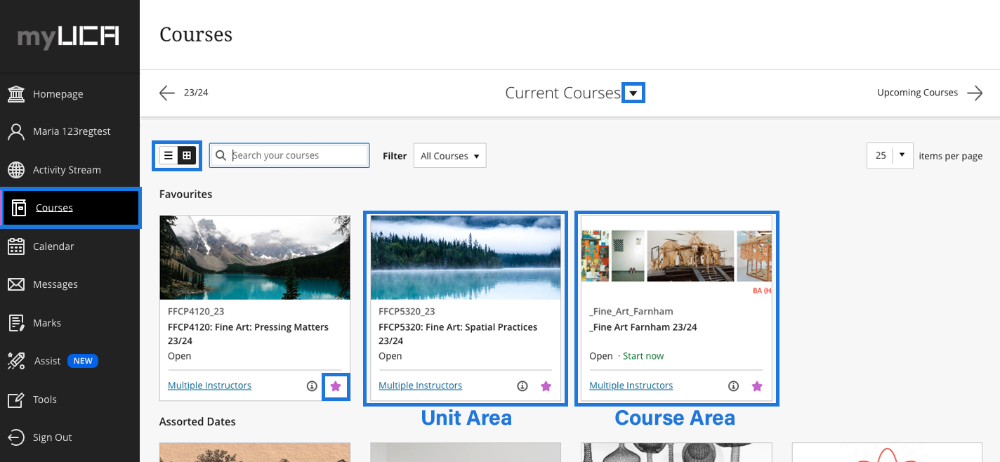
Each course at UCA has a main course area on myUCA. The main course area will contain all current students on this course regardless of their year. This area is not used for assignment submission or feedback. It is a community area for all students enrolled on your course. Each unit within your course will have a unit area in myUCA, they are easily identified as the title begins with a code (e.g. FFCP4120). Unit areas are where the majority of teaching information is held including teaching materials, assessments, feedback, and reading lists.
Within the courses and organisations pages, you can search, filter and favourite, which will pin courses to the top of the page. You can also change the layout to show either as a list or tiles. Any courses which you have access to will be listed under 'Current Courses'. You can use the drop-down list to select the courses for a specific academic year.
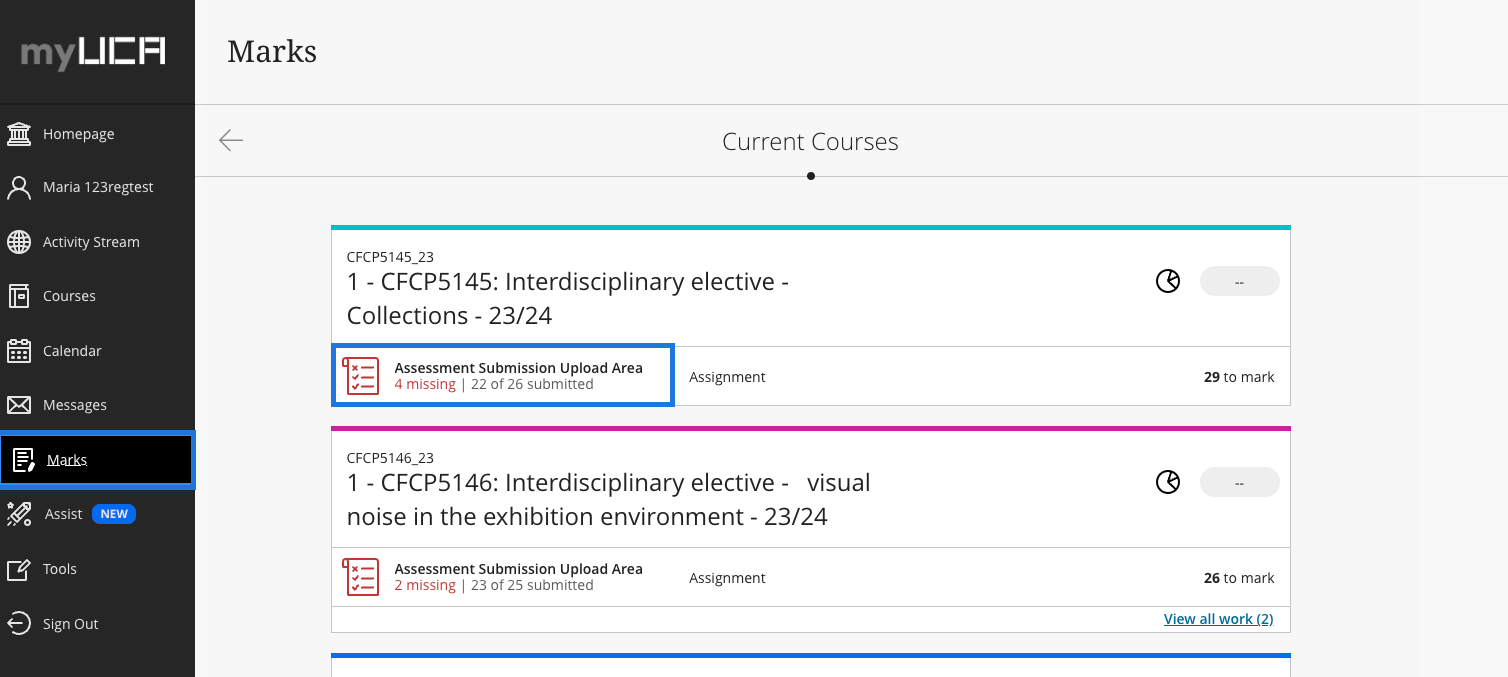
Marks provides you with a centralised view of grades for your courses including the average grades, what needs grading and submission progress. You can gain all this information without having to go into the courses individually. Students can use this area to access Marks and Feedback for all their units.
Setup for new units
All units in myUCA are created new each academic year from the same template to create a consistent experience for students, and to help you meet the Minimum Benchmark Requirements for all myUCA courses. The template contains the recommended setup and organisation for your units and course areas.
The image below shows an example of what your units will look like when they are first created based off the template. Highlighted in blue are the sections you will need to edit to customise your unit area. The guides below will take you through the steps and how to populate and adapt the area to fit the needs of your course.
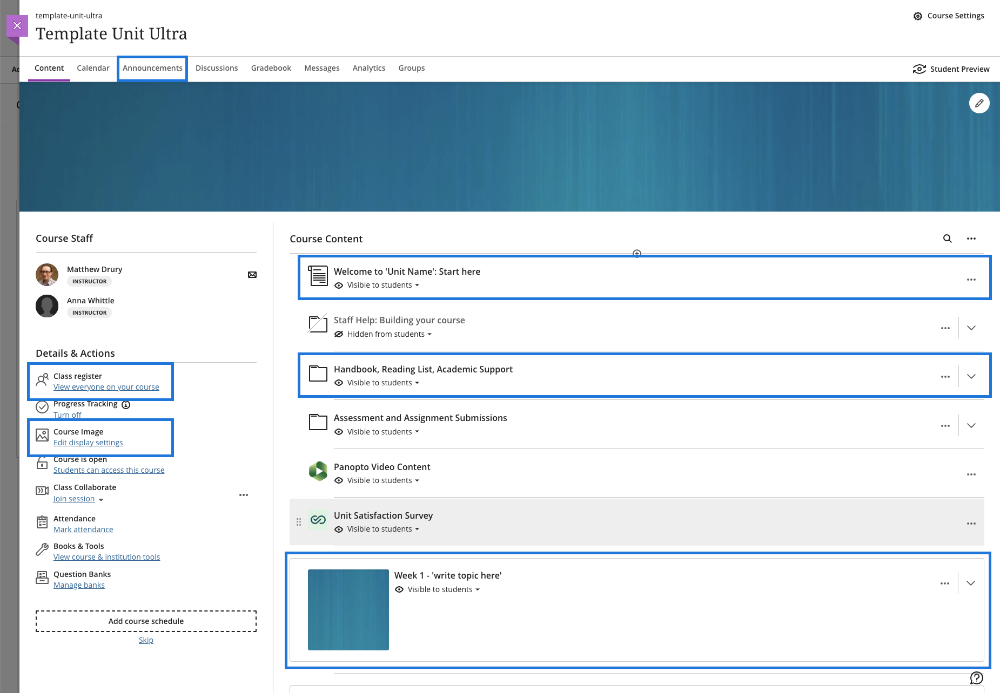
All units in myUCA are created new each academic year from the same template. The template contains the recommended setup and organisation for your units and course areas. Once the template units are created, you can then customise them for your course. The setup guide will take you through the necessary steps to customise your units before the beginning of term. Once you have completed setup customisation for your unit, you are ready to start adding content.
These are some of the more frequently used tips for myUCA. For a more comprehensive guide to these and adding content to your course pages, please follow this link.
This guide has been constructed by Anna Whittle and Matthew Drury and has been edited down by the Creative Education team. For a more comprehensive version please head over to this link where you will find lots more detailed technical guides on Panopto as a teaching tool.

Panopto is a video recording, organising, editing and sharing tool that is designed specifically for educational purposes. Panopto is already integrated with myUCA; each course and unit has its own Panopto folder ready for you to add or record video content into.
How to access Panopto
All staff and students at UCA are automatically given a Panopto account. You can access your home folder for Panopto directly here or access your Panopto account through any of your course or unit areas by clicking the 'Panopto Video' icon in the content area. This will take you directly through to that unit's Panopto Folder.
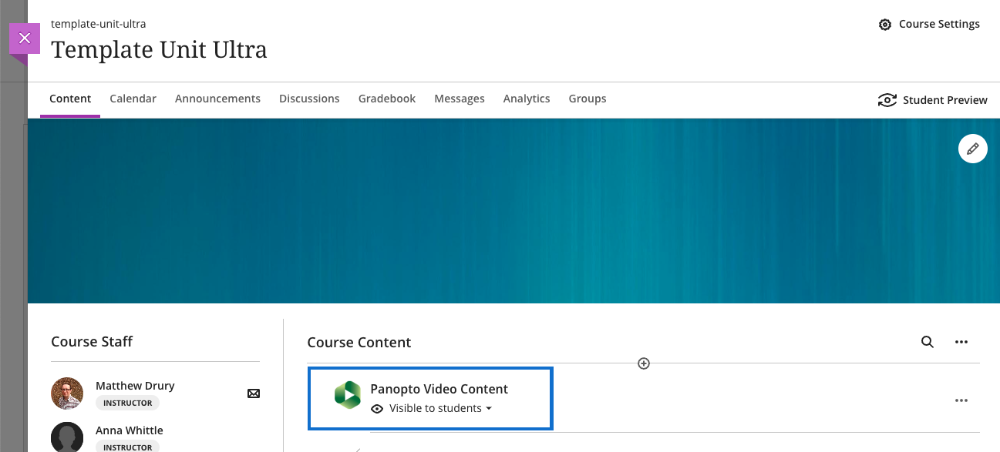
You can then choose whether to use Panopto within myUCA or you can select the pop out icon in the top right hand corner and use Panopto within a designated browser window:

For more guidance this link will take you through a general overview for Instructors of how to navigate and use Panopto within your courses and units in myUCA (Blackboard).
This guide has been constructed by Anna Whittle and Matthew Drury and has been edited down by the Creative Education team. For a more comprehensive version please head over to this link where you will find lots more detailed technical guides on assessment through digital tools such as Turnitin, Blackboard assignments, Panopto video assignments, digitising work for physical hand in, and much more.

myUCA
Where possible, all assessment submissions should be set up within myUCA. This ensures that all submissions are automatically archived within myUCA for the required period of time and creates a singular point of contact where students can locate their submission boxes, marks and feedback. There are many assessment tools available to you within myUCA to suit a variety of assessment needs. Which assessment tool you decide to use will most likely depend on the type of file the students will be submitting and the type of task set:

In the majority of cases, your Course Administrator can assist you with setting up your submission boxes, assessments, feedback release, and marks in myUCA. However, all instructors can set up their own assessment areas within myUCA as well. For more in depth guidance on how to do this, please follow this link, which will give you a detailed description of each assessment tool and how to set them up in myUCA.
For a brief guide on this, please continue to read. .

Turnitin
A Turnitin box is the best option for submissions that will be mainly text based and need checking for plagiarism such as essays and reports.
Turnitin is a web-based plagiarism prevention submission programme used by most universities in the UK. Turnitin compares text within a student's submission against an archive of internet documents, internet data, a repository of previously submitted papers, periodicals, journals, and publications and provides a similarity report and score for the submission.
At UCA we use Turnitin to:
- Act as a deterrent against plagiarism.
- Provide reports which can help identify occurrences of plagiarism.
- Provide students with a tool to identify and correct possible occurrences of plagiarism in their own work and improve their academic writing.
Requirements for Turnitin submissions:
- Text based Submissions
- Minimum 20 words.
- PDF, Word Document, PowerPoint
- Under 100Mb

Blackboard Assignments:
The Blackboard Assignment tool is the most versatile submission tool as it allows students to submit any type of file as well as multiple files. It has a large upper file size limit of 2.56 GB. The Blackboard Assignment tool is the best assessment option for submissions that will not require text plagiarism checking such as image based content, portfolios.
Blackboard Assignment submissions:
- Any file type accepted
- Multiple files can be accepted
- Large file size limit of 2.56 GB
- Cannot check for plagiarism - Not recommended for text-based submissions.
- Allow group submissions

Panopto Video Assignments
When you are enrolled onto a course/unit in MyUCA as an Instructor, you automatically have permission to create Blackboard assignments. If you need help gaining access to any courses or units, contact mycoursehelp@uca.ac.uk.
The Panopto Video Assignment tool is a variation of the Blackboard assignment submission tool. The Panopto Video Assignment tool is the best assessment option for video file submissions.
Panopto Video Assignment submissions:
- Videos uploaded or recorded in Panopto accepted
- One Video file can be accepted
- No maximum Video size limit
- Accepts multiple files
- Cannot check for plagiarism
These are some of the more frequently used digital tools for assessment. For a more comprehensive guide to these and others digital tools for assessment, please follow this link.
Miro
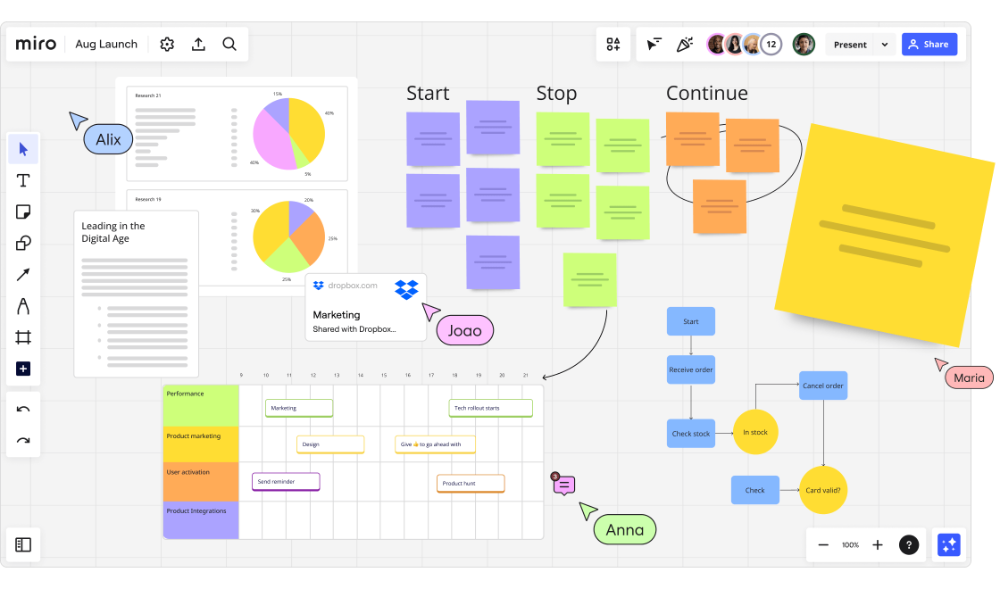
Miro is an online collaborative whiteboarding platform. It's ideal for brainstorming, mind mapping, and project planning in creative courses. Students and educators can collaborate in real-time, making it excellent for distance learning and group projects.
View Lecturer Xinya You’s webinar on using Miro in creative education
Padlet
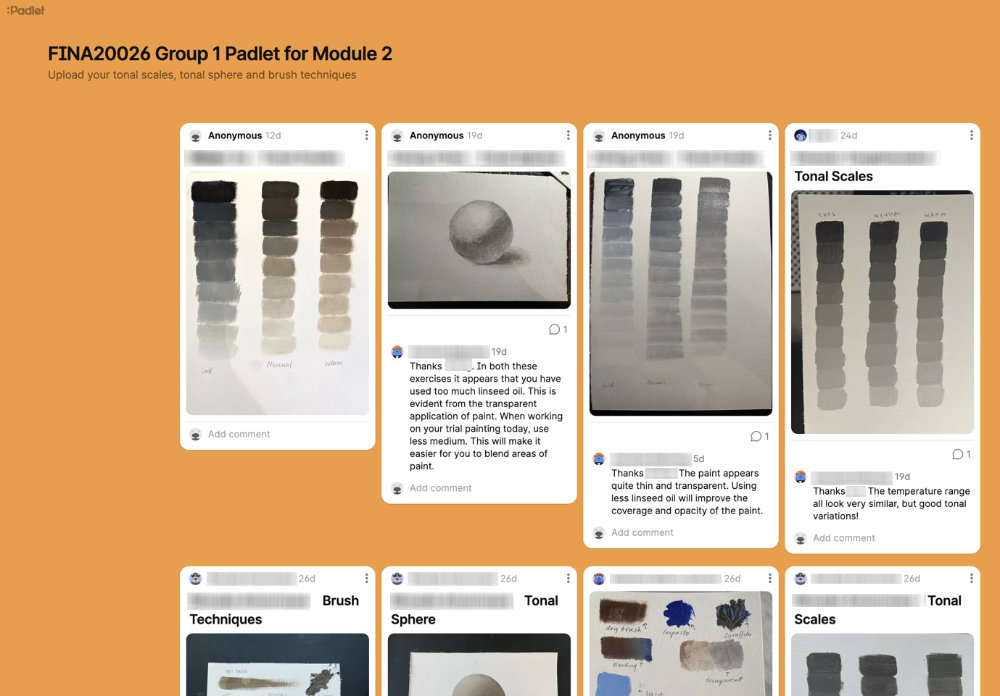
Padlet is a versatile digital canvas that can be used for creating boards, documents, and webpages. It's useful for organising resources, facilitating discussions, and showcasing student portfolios in creative subjects.
Mentimeter
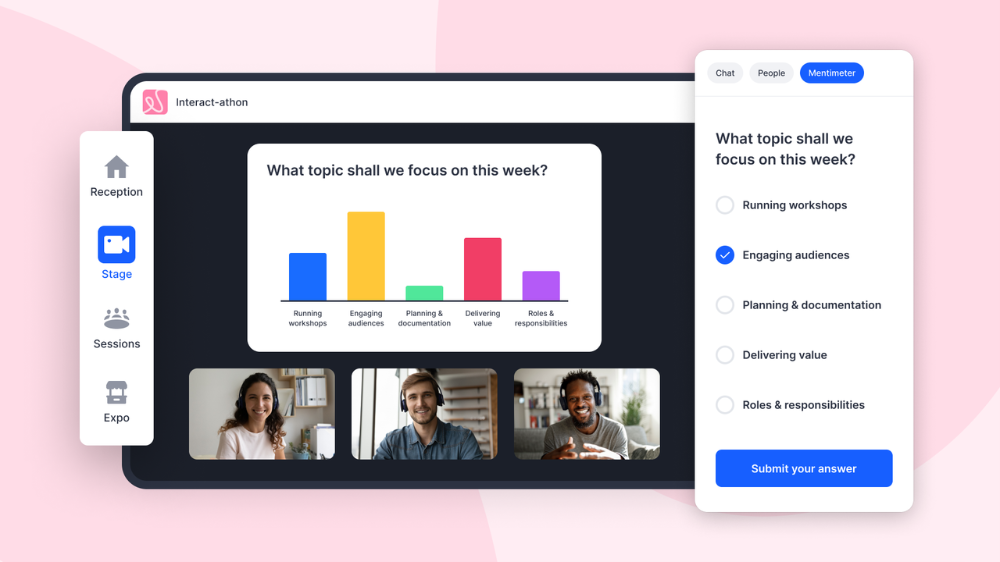
Mentimeter is an interactive presentation software. It's useful for engaging students in real-time during lectures through quizzes, polls, and Q&A sessions, fostering interactive learning and feedback.
Slido
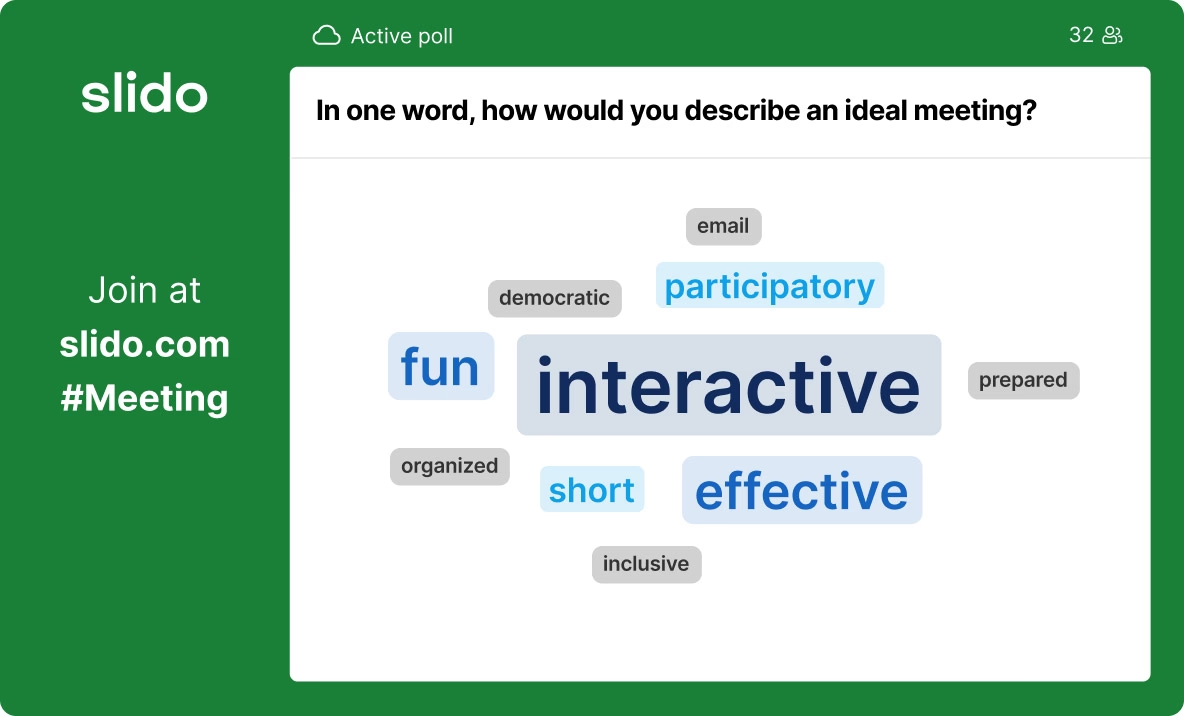
Slido is an audience interaction tool that enhances communication between students and educators. It allows for live Q&As, polls, and feedback during classes, ideal for large lecture courses or online learning.
Canva
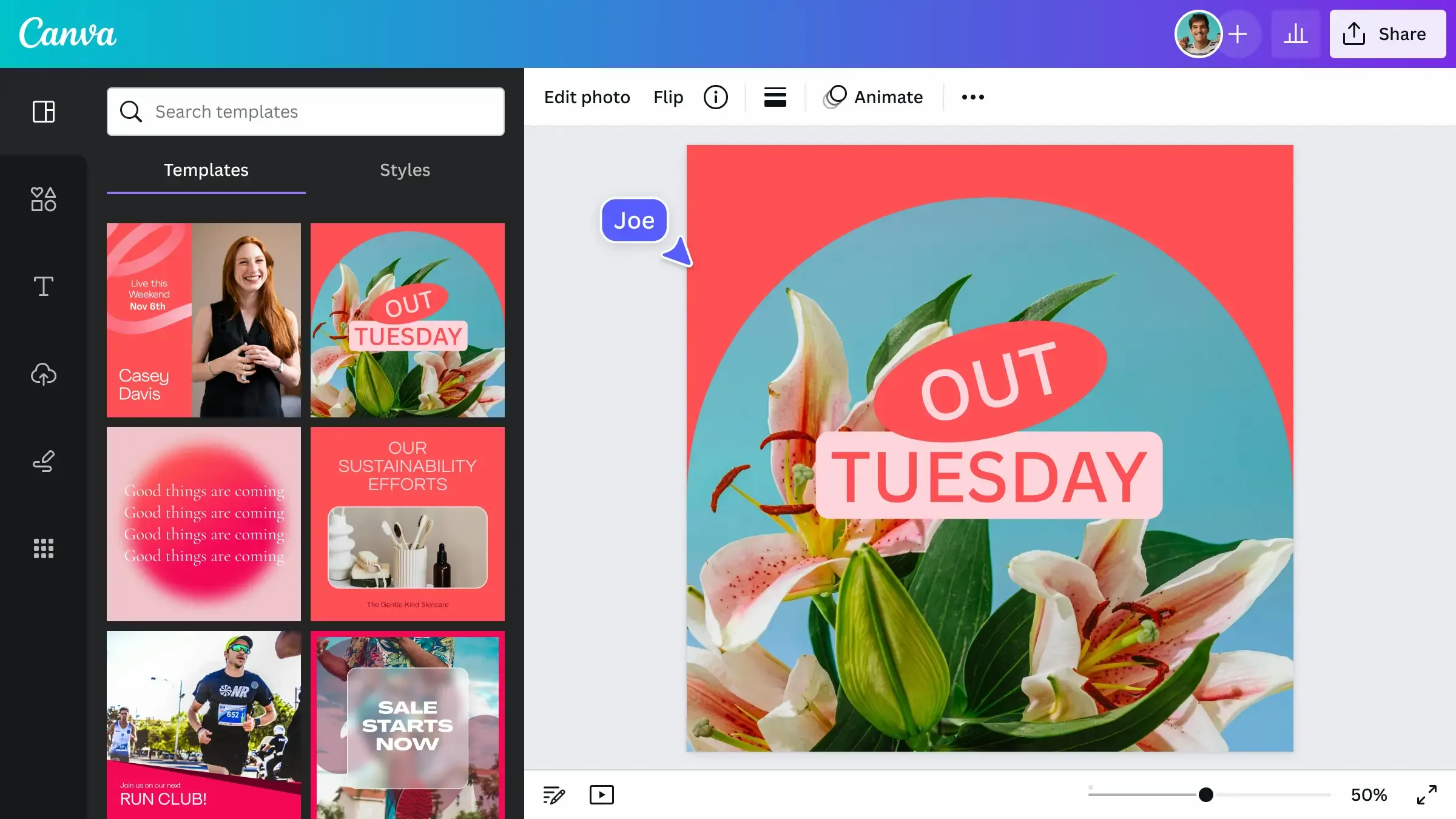
Canva is a design platform that's user-friendly and great for creating visual content. It's useful for students in marketing, graphic design, and digital media for creating presentations, posters, and social media content. It can be a great tool for creating infographics for your students.
Trello
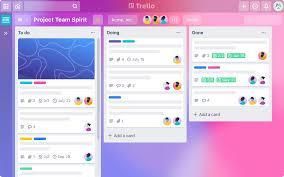
Trello is a collaboration tool that organises projects into boards. It is great for project management in group assignments, allowing students to track progress and coordinate tasks.
Please join us for our next series of Creative Education webinar on both the 4th December 2024 where we will be exploring 'Organising My Course Online' and on the 6th March 2025 where we will discuss 'Engaging Learners in Person and Online'. All of these webinars are now bookable via iTrent and clicking on the 'Learning' tab. Once you have booked, a link will be made available to add to your Teams calendar.
AI Guidance
Please find the Quick Reference Guide Ethical AI Use in Your Studies here, or by clicking on the linked image below.
Whilst UCA build policies around their AI guidance, please explore some of the webinars that Creative Education have held on Generative AI in teaching and learning.
A link to advice and Guidance from JISC on the use of Generative AI
A link to many recordings from UAL's amazing event 'AI Conversations'
Please watch our webinar where we welcome Professor Melanie Gray, who talked through her thought piece on Generative AI and it’s Impact on Creative Education
Personal Academic Tutoring Framework
For Academics and Professional Services
Sponsor: Professor Anastasios Maragiannis, PVC Creative Education.
Reviewed and developed by: Ruth Torr, PD in Film; Tom Northey, Associate Dean Farnham; Alice McLaren, Director of Student Life; Jim Nottingham, Director of Digital and IT Services; Dr Rebecca Court, Associate Dean Farnham; Dr Yoriko Otomo, Research Degrees Lead; Nikolai Elkins, Creative Education.
Your journey here isn’t meant to be a solo expedition. Every student at UCA is paired with a Personal Tutor: a dedicated academic who gets to know you, supports your wellbeing, and helps you navigate your studies and future plans.
Policy Title: Personal Academic Tutoring Policy
Author Lead: Pro Vice-Chancellor (Creative Education)
Policy Sponsor: DVC
Approval Route: University Executive Group
Date of Approval: 4 September 2025 (pilot)
Next Review Date: July 2026
/prod01/channel_13/uca-creative-education/media/research-and-enterprise/nikolai/kimberly-farmer-lUaaKCUANVI-unsplash-copy.jpeg)
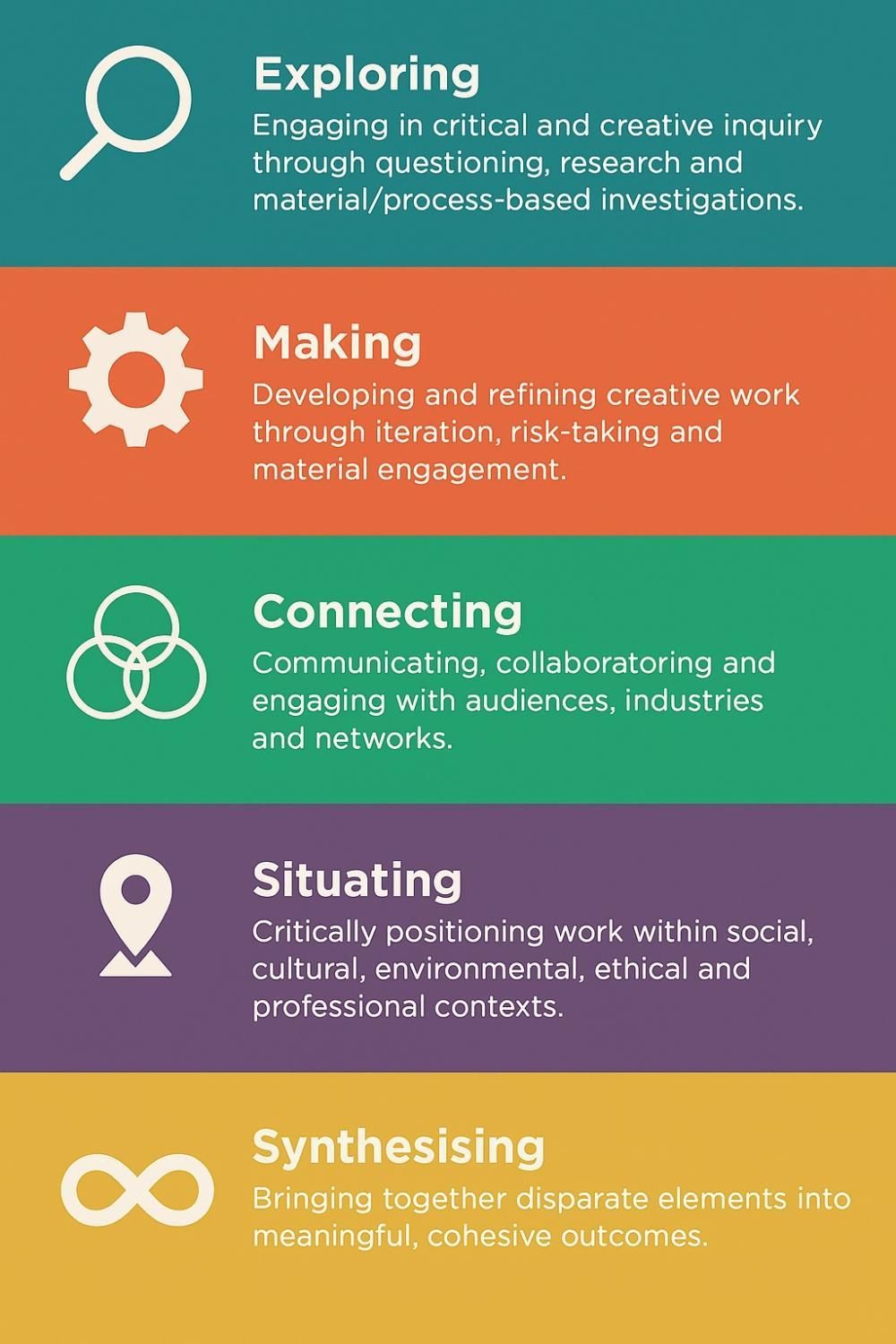
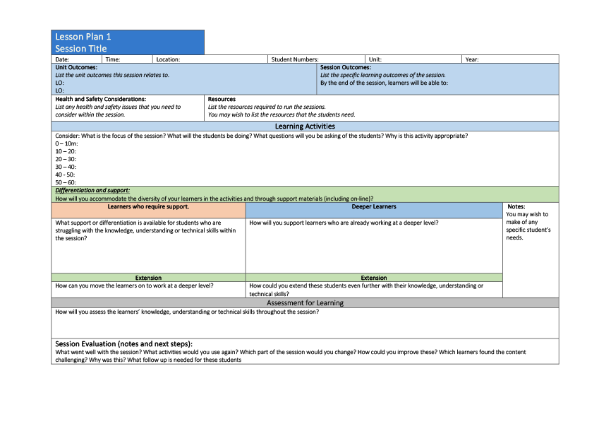
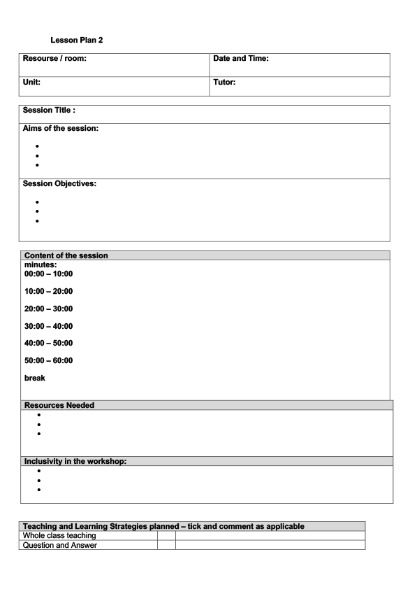
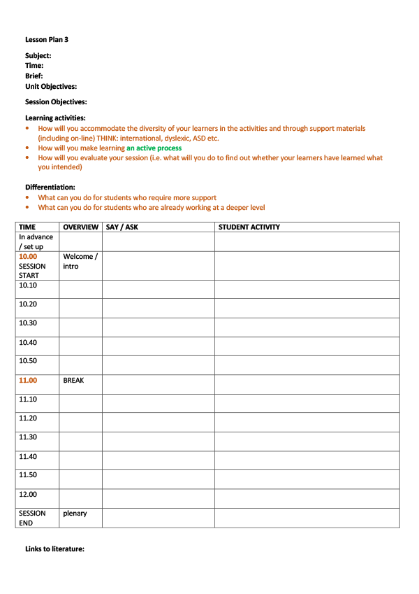
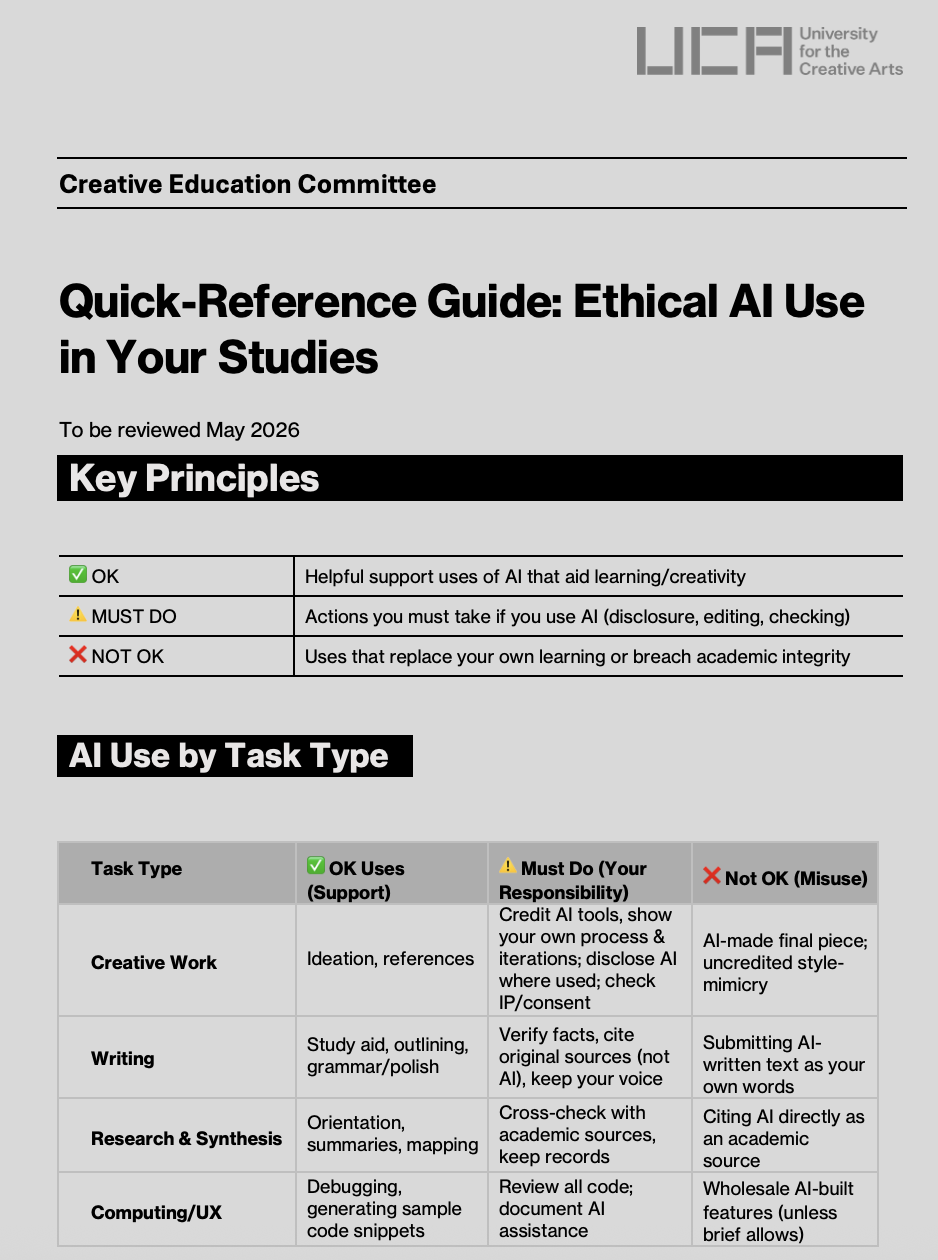
/prod01/channel_13/uca-creative-education/media/microsites/creative-education/decolonise-the-curriculum.jpg)
/prod01/channel_13/uca-creative-education/media/microsites/creative-education/awarding-gaps.jpg)
/prod01/channel_13/uca-creative-education/media/microsites/creative-education/social-justice.jpg)
/prod01/channel_13/uca-creative-education/media/microsites/creative-education/Writing-Learning-Objectives.jpg)
/prod01/channel_13/uca-creative-education/media/microsites/creative-education/Summative-Feedback.jpg)
/prod01/channel_13/uca-creative-education/media/microsites/creative-education/Formative-Feedback.jpg)
/prod01/channel_13/uca-creative-education/media/microsites/creative-education/Constructive-Alignment.jpg)
/prod01/channel_13/uca-creative-education/media/microsites/creative-education/Considering-Unit-Briefs.jpg)
/prod01/channel_13/uca-creative-education/media/microsites/creative-education/Assessing-Against-Learning-Objectives.jpg)
/prod01/channel_13/uca-creative-education/media/microsites/creative-education/why-create-a-session-plan.jpg)